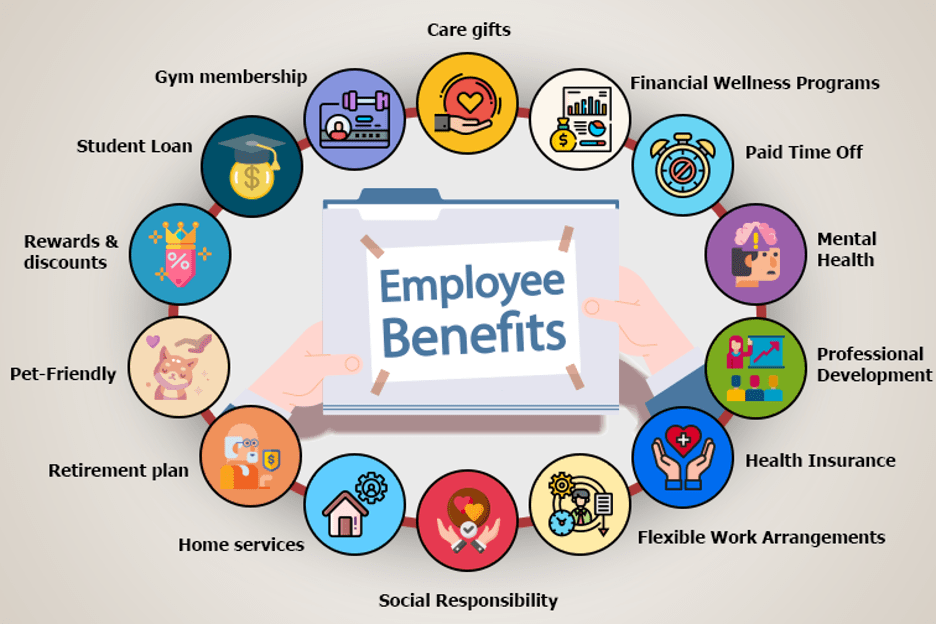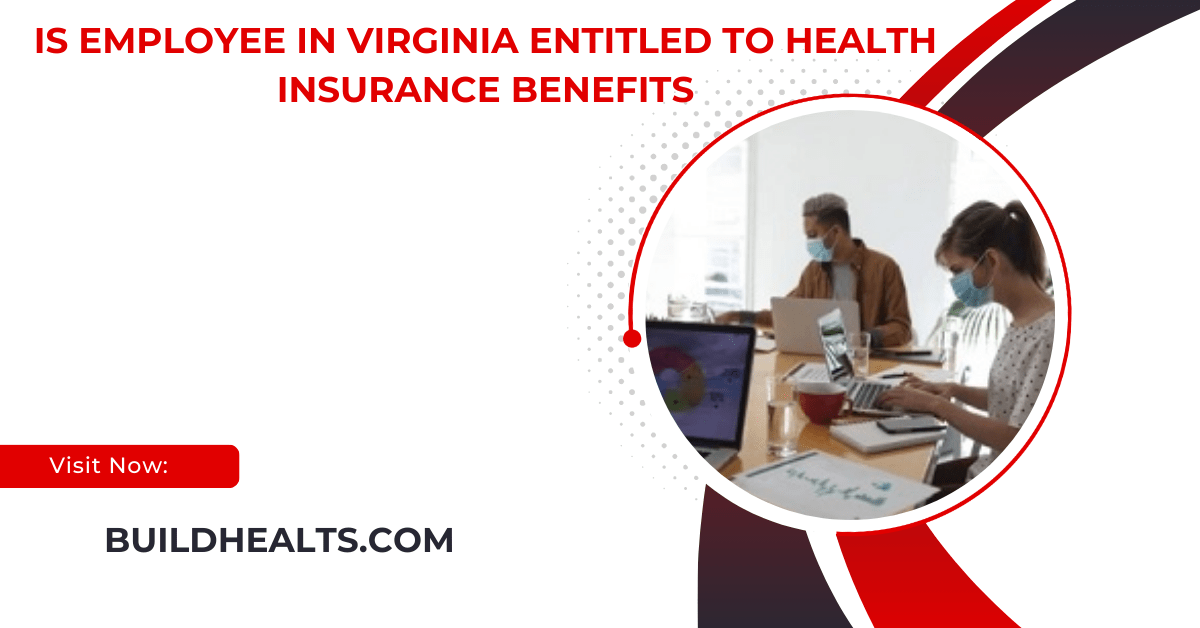Employees in Virginia may get health insurance benefits if their employer has 50 or more full-time workers. Eligibility depends on employer size and employment status.
Health insurance is an essential part of an employee’s compensation package. In Virginia, like in many other states, employees may wonder about their rights to health insurance benefits.
This article will explain the basics of health insurance benefits for employees in Virginia, including who is eligible, types of coverage available, and what to do if you are denied coverage.
Understanding Health Insurance Benefits:

Health insurance helps cover medical expenses, such as doctor visits, hospital stays, and prescriptions. In Virginia, employers often provide health insurance as part of the employee benefits package. However, not all employers are required to offer health insurance, and employees should know their rights.
Who Is Eligible for Health Insurance Benefits?
In Virginia, eligibility for health insurance benefits typically depends on several factors:
- Employer Size: Under the Affordable Care Act (ACA), employers with 50 or more full-time employees must provide health insurance. If an employer has fewer than 50 employees, they are not required to offer health insurance, but many choose to do so to attract and retain talent.
- Employment Status: Full-time employees (those who work 30 hours or more per week) are more likely to receive health insurance benefits than part-time employees. Part-time employees may have limited access to health insurance, depending on the employer’s policies.
- Length of Employment: Some employers require employees to work for a certain period (such as 90 days) before they can enroll in health insurance benefits. This waiting period is common in many workplaces.
Types of Health Insurance Coverage:
Employees in Virginia can receive various types of health insurance coverage, including:
- Employer-Sponsored Plans: Many employers offer group health insurance plans that cover employees and their families. These plans can vary in cost, coverage, and provider networks.
- Government Programs: Employees may also qualify for government programs like Medicaid or Medicare, depending on their income and age. Medicaid provides coverage for low-income individuals and families, while Medicare is for those 65 and older or with specific disabilities.
- Individual Plans: Employees can purchase individual health insurance plans through the Health Insurance Marketplace, especially if their employer does not provide coverage. These plans can be more expensive but offer flexibility in choosing providers.
Also read: Do Solar Panels Have Health Risks – A Complete Guide!
Employee Rights Regarding Health Insurance:
Employees in Virginia have rights concerning health insurance benefits. It is important to know these rights to ensure fair treatment.
The Affordable Care Act (ACA):
The ACA is a federal law that provides protections for employees regarding health insurance. Some key points include:
- Pre-existing Conditions: Employers cannot deny coverage based on pre-existing conditions. This means that if an employee has a health issue before enrolling in a plan, they still have the right to get insurance.
- Essential Health Benefits: All health insurance plans must cover a set of essential health benefits, including emergency services, hospitalization, and preventive services. This ensures that employees receive comprehensive care.
- No Lifetime Limits: The ACA prohibits health insurance plans from imposing lifetime limits on essential health benefits. This means that an employee’s insurance will continue to cover necessary treatments without capping the amount paid.
State Laws and Protections:
In addition to federal laws, Virginia has its own regulations regarding health insurance:
- Virginia Health Benefits Exchange: Virginia operates a health benefits exchange where employees can shop for insurance. This allows employees to compare different plans and find one that fits their needs and budget.
- Continuation Coverage: Virginia law provides continuation coverage for employees who lose their jobs or experience a reduction in hours. This allows individuals to keep their health insurance for a limited time after leaving their job.
What to Do if You Are Denied Health Insurance Benefits:

Sometimes, employees may encounter issues with their health insurance benefits, such as being denied coverage. Here are steps to take if you face this situation:
- Review the Plan Documents: Start by reviewing your employer’s health insurance plan documents. These documents outline eligibility requirements, coverage details, and the appeals process. Understanding the plan can help clarify why you were denied coverage.
- Talk to Your Employer: If you believe you are entitled to health insurance benefits, speak to your employer or the HR department. They can provide information about your eligibility and the reasons for the denial. It is essential to communicate openly and gather any necessary documentation to support your case.
- File an Appeal: If your employer denies your request for health insurance benefits, you can file an appeal. The appeal process varies by employer and plan, but it typically involves submitting a written request for reconsideration. Include any supporting documents and explain why you believe you are entitled to coverage.
- Seek Legal Advice: If you still cannot resolve the issue, consider seeking legal advice. An attorney specializing in employment law can help you understand your rights and guide you through the appeals process. They can also help you determine if your employer has violated any laws regarding health insurance benefits.
FAQ’s
1. Are all employers in Virginia required to offer health insurance?
No, only employers with 50 or more full-time employees are required to provide health insurance under the Affordable Care Act (ACA). Smaller employers may choose to offer it.
2. What types of health insurance can employees receive in Virginia?
Employees can receive employer-sponsored plans, government programs like Medicaid and Medicare, or individual plans purchased through the Health Insurance Marketplace.
3. Can an employer deny health insurance due to pre-existing conditions?
No, under the ACA, employers cannot deny coverage based on pre-existing conditions. Employees have the right to obtain insurance regardless of their health history.
4. What should I do if my health insurance claim is denied?
First, review your employer’s health insurance plan documents. Then, talk to your employer or HR for clarification, and consider filing an appeal if you believe you are entitled to coverage.
5. Is there a way to keep health insurance after losing a job in Virginia?
Yes, Virginia law provides continuation coverage that allows employees to maintain their health insurance for a limited time after job loss or reduction in hours.
Conclusion
In Virginia, employees may have rights to health insurance benefits, especially if they work for employers with 50 or more full-time workers. The Affordable Care Act requires these larger employers to provide coverage, while smaller employers may also choose to do so. Understanding eligibility and rights is essential for navigating health insurance issues effectively.




